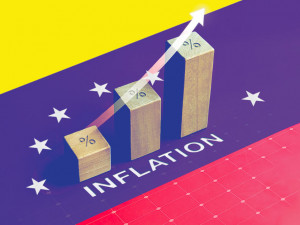
As the world becomes increasingly connected, the currency markets can be deeply reflective of the state of global politics, and vice versa. As they influence and shape each other, these major impacts can be felt among economies, businesses and individuals alike. Policy decisions, international relations and investor confidence all contribute to a sense of ‘economic stability’, which makes events in politics one of the main drivers of currency fluctuation. Through exploration of this intricate relationship, we can examine the extent of politics’ impact on currency values, and the importance of understanding these connections for anyone engaged in the global economy.
Main Political Influences on Currency Markets
As currency values are fundamentally tied to a global perception of a country’s overall stability, prospects for growth and investor confidence, political events often have substantial and immediate effects on currency values, often being realised within hours of a news headline.

Monetary Policy
Controlled by central banks, this is the most direct way that politics impacts currency values. As we explored in this article, there are many tools available for impacting currency values, including interest rate adjustments, money supply changes and quantitative easing. Political leaders influence the decisions of central banks – either by directly intervening or appointing members of government who align with an overall plan for economic policies.
Political Stability and Leadership Change
This idea of ‘stability’ is strongly influenced by perceptions of a government’s predictability. During times of turmoil, reflected by protests, leadership change or major policy U-turns, investors may become anxious and pull their capital from the markets, therefore weakening the currency. National elections are particularly uncertain times, where investors may hedge the risk by selling off assets.
One clear example of this is Brexit. A time of huge uncertainty, investors caused great fluctuations to the Pound (GBP). Ongoing negotiations, and multiple possible outcomes for the relationship between the UK and EU created an extended period of instability, with consequences for both businesses and investors.
Tariffs
A particularly strong idea voiced in Donald Trump’s 2024 election campaign, tariffs impact a currency’s value by altering the flow of capital between countries. The implementation of tariffs, subsidies or trade restrictions can affect demand for currencies. For example, a government protectionist policy for reducing imports may strengthen the national currency as a result of decreased demand for foreign currency.
On the other hand, trade agreements like the Trans-Pacific Partnership can strengthen participating countries’ currencies in a reciprocal manner, facilitating cross-border investments and capital flow.
Conflicts and Disputes
Geopolitical tension, resulting in conflicts, sanctions, or diplomatic disputes are all major disruptors of investor confidence. Sanctions are a particularly effective tool at impacting currency, targeting specific industry or financial systems. Russia has faced heavy sanctions after its invasion of Ukraine, with significant impacts being seen on ruble prices.
Populism and Nationalism
The increasing traction of populism and nationalism worldwide is having major effects on currency markets. Policies associated with these movements often advocate for seemingly beneficial domestic effects, yet carry risks for long term economic risks globally. A protectionist policy might give a short term boost to a certain sector, but a long term disruption of trade relations and therefore decreased currency appeal. As a country turns in on itself, foreign investors are deterred, with a weakening of currency stability. Examples include the Argentine peso, experiencing extreme devaluation after nationalist policies brought limitations to foreign currency reserves and foreign investment.
Currency as a Political Tool
For political manoeuvring, governments often try to manipulate currency values to serve a broader economic goal.
Deliberate Devaluation
This is a political tactic often used by governments looking to cheapen their exports and stimulate an economy. Recent accusations have been made that China deliberately devalued the yuan to maintain competitive exports, to fuel economic growth. However, this tactic needs to be applied with caution, as excessive devaluation will lead to inflation, and retaliatory measures from competing nations, through tariffs or embargoes.
Sanctions and Restrictions
Governments use sanctions as a political tool to impact currency values, limiting access to currency, reducing trade and causing devaluations. Cases such as Iran, Venezuela and North Korea have had their economies crippled by sanctions, due to their limited access to global markets and foreign capital.
Central Bank Independence?
Ideally, a central bank should be independent, often believed to be essential for maintaining stable currency. This is generally due to the belief that decisions should be made on the basis of economic indicators, rather than political pressure. However, it is very difficult for central banks to be completely isolated from politics. It is common for the head of a central bank to be appointed by political leaders, again leading to potential discrepancies between short term political objectives and long-term economic stability.
Key Examples of Political Events and Currency Markets
- Brexit, June 2016 – Plummeting pound after negotiation uncertainty, remaining sensitive to political developments years after, if related to Brexit.
- US-China Trade war – Constant back and forth tariffs, accusations of currency manipulation, with currency values experiencing major fluctuations.
- Argentine Peso Crisis – Overall instability, mismanagement and debt crises led to the rapid devaluation of the peso.

How to Navigate Political Risk
Understanding the risks of political events to currency values, as is the ability to manage them and capitalise upon opportunities. Its crucial for investors to maintain a close eye on political developments, particularly in economic policy and central bank actions. Hedging strategies are key for managing currency risk, with the ability to lock in exchange rates for future transactions, mitigating potential loss. Diversification is another strategy, to spread risk across a number of regions and currencies.
Conclusion
The link between currency and politics will always be strong, through policy decision, international relations, and unstable governments contributing to the currency landscape. An understanding of this relationship is essential for anyone involved in the global economy, showing the underlying drivers between movements we see in price charts. As we enter a period of significant political change, staying informed and prepared for price movements will safeguard investments against unpredictable events in the future.
As always, for currency news and insight into the world of currency, make sure to stay up to date with our Expert Analysis, as well as our daily Market Commentary.
Caleb Hinton
Caleb is a writer specialising in financial copy. He has a background in copywriting, banking, digital wallets, and SEO – and enjoys writing in his spare time too, as well as language learning, chess and investing.



